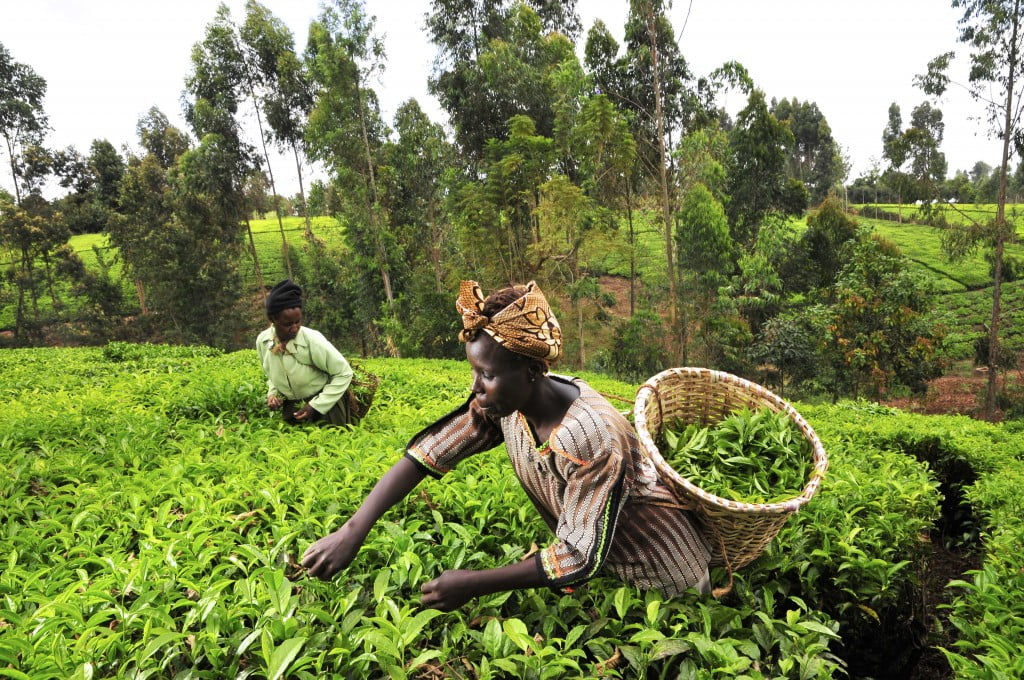Over 7 million people suffer from malnutrition in Ethiopia, and one of the ways to increase food security in the poor African country is to increase crop yields.
Israeli nonprofit organization Fair Planet is helping Ethiopia fight hunger by providing farmers with high-quality seeds that can better withstand harsh climate conditions, and are more resistant to pests. Partly developed in Israel, these seeds have shown to increase crop yields fivefold.
For Ethiopian family farmers, whose daily income averages around $1.5, climate change and occasional outbreaks of pests can threaten their very survival.
According to Fair Planet, some of the main problems these Ethiopian farmers face are that the local seed varieties are highly susceptible to pests and diseases. Many crops also have very short shelf lives.
The Israeli NGO provides high-quality seed varieties that are resistant to many pests and diseases, minimizing post-harvest losses. Founded in 2012 by Israeli Dr. Shoshan Haran, Fair Planet seeks to provide famine-stricken Ethiopia with food security and economic opportunities, “by making high-quality vegetable seeds, suitable to local conditions, accessible and affordable to local farmers.”
Haran, who specializes in plant protection after having worked for Israeli seed company Hazera (which means “the seed” in Hebrew), says: “I realized that the best way to help poor farmers in developing countries is to give them access to quality seeds.”
These companies breed, develop, and produce mass quantities of different seed varieties that allow farmers to grow a wide range of vegetable crops around the world.
Bringing super-seeds to famine-stricken parts of the world
Aiming to solve the problems of hunger and poverty for the poorest farmers in the world, Haran “wanted to bring what seed companies had developed to the hungry world.” And that’s why she founded Fair Planet, which currently connects companies that develop quality seed varieties to small-scale farmers in several famine-stricken Ethiopian communities.
SEE ALSO: By Improving Access To Basic Necessities, Israeli Technologies Transform Africa, Save Lives
So far, over 100 Israeli volunteers have helped 15,000 farmers increase their crop yields – and income. Several Israeli organizations and companies have partnered with Fair Planet, including drip-irrigation leader Netafim, seed developer Hazera, the Jewish National Fund, and Israel’s Agency for International Development Cooperation (Mashav). Syngenta, Bayer, Enza Zaden, East-West Seed, Limagrain and the Dutch government are also involved in the project.
Sign up for our free weekly newsletter
Subscribe480 model farms
When volunteers first get to a certain area, they test several varieties of seeds to see what is best for the local soil, growing methods and climate. They then train the farmers, so they can continue growing improved vegetables and other crops – using seeds supplied by Fair Planet’s partners.
During the five years since the organization was founded, its volunteers have set up 480 model farms and tested 143 vegetable varieties in several Ethiopian towns and villages, including Butajira, Dire Dawa and Haramaya.
Expanding throughout Africa
Fair Planet recently partnered with Israeli planning and design firm AlefBet Planners in hopes to expand the organization’s activity to other African countries, including Tanzania and Uganda.
AlefBet’s Daphna Regev says Fair Planet’s “proven success has an immense potential to expand, and to help many more people. The project doesn’t create dependence; rather, it empowers farmers to increase their crop yields and income significantly in a short period of time.”
SEE ALSO: Israeli Firm AlefBet Partakes In Ethiopia’s Initiative To Build 2.4 Million Houses In Five Years
Based in Tel Aviv, AlefBet Planners is a multidisciplinary design company of architects, engineers, designers and consultants. Among its projects are Sapir College and Triumph’s distribution center in Israel, residential neighborhoods in Nigeria and manufacturing facilities around the globe. It is currently taking part in Ethiopia’s ambitious initiative to build 2.4 million houses by 2021.
Photos and video: Fair Planet, CIAT
Related posts

Resilient And Nutritious New Plant-Based Milk Aims To Make A Splash

Chocolate From Cultivated Cocoa Comes Without Environmental Toll

Plastic Fantastic: Startup Takes PVC Back To Its Crude Oil Roots




Facebook comments